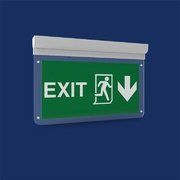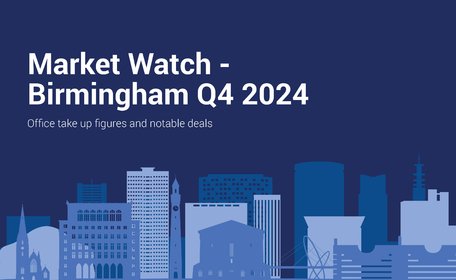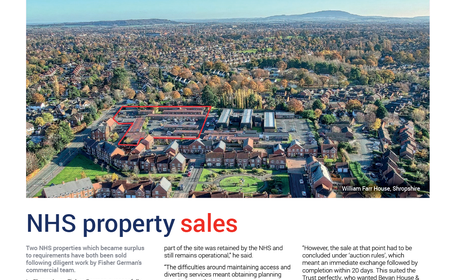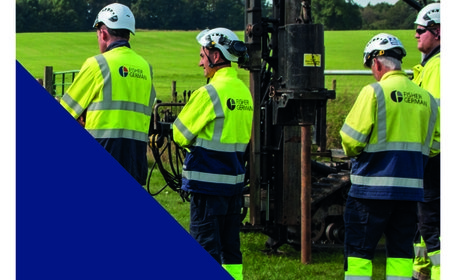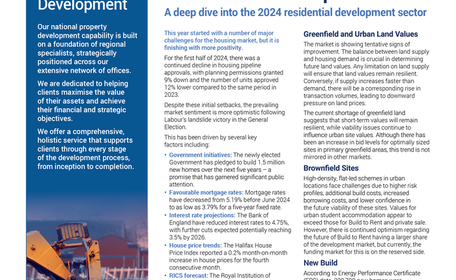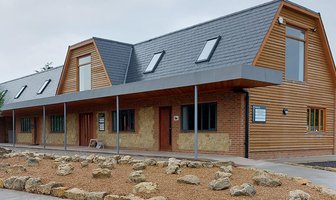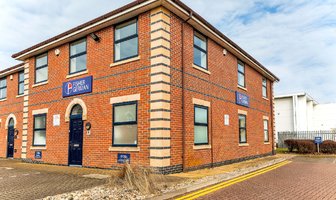In short, we help our clients save money.
Our experience and expertise covers a wide range of properties and sectors across the country - including offices, industrial, leisure and retail premises, as well as specialist properties including utilities etc.
So, if you recently received a Business Rates demand then we can help by:
- Reviewing your current Business Rates liabilities and challenge the Government Agency (the Valuation Office) wherever we think their records and valuation bases are wrong
- Ascertaining if there are any Business Rates reliefs and exemptions which you could claim – there could also be reductions in your liabilities if your property and its occupants are affected by a nearby development works etc
Whether your new assessment increases, decreases or stays the same, experience tells us there could be several opportunities to reduce the rates you pay on this new list. Any one of them could make a significant difference to your bottom line.
To find out if your Business Rates liabilities are correct, to understand how business rates are calculated, or for any Business Rates related advice, please call Jonathan Young on 01512 421081 today, or complete our online enquiry form. We will get straight back to you.
The team also works closely with other specialist teams across the firm to ensure clients benefit from integrated and holistic property advice – one team, one plan, one goal.
Frequently Asked Questions (FAQs) about business rates
The party entitled to possession of the premises is responsible for paying Business Rates. This is usually either the occupier or the owner, though this can vary and may need to be considered.
Sometimes, the landlord of the property charges the occupier rent, which includes the Business Rates charge, so it is important that the local authority bill the correct party.
To work out your Business Rates bill, multiply your property's Rateable Value (RV) by the rating multiplier and include any supplements. The multiplier varies according to the size of the RV and the property location, but for England, most properties pay at 49.9 or 51.2 pence in the pound.
This must be adjusted to ensure that discounts, reductions or transitional arrangements, which apply to you, are reflected in the bill.
Although your local council calculates and collects your Business Rates, they cannot change your Rateable Value or multiplier – as the Government sets these.
An independent Valuation Officer fixes the Rateable Value of non-domestic property in England and Wales at the Valuation Office Agency (VOA). In Scotland, the Scottish Assessor sets the Rateable Value.
The current Valuation came into effect on 1 April 2023, and the Rateable Value of a property represents its annual open market value as of 1 April 2021 in England and Wales and 1 April 2022 in Scotland.
In England, the Government’s ‘Check, Challenge, Appeal’ process is designed to reduce the number of appeals the VOA has to deal with.
This comprises:
Check
- The VOA reviews the factual information provided (such as floor areas) for accuracy – against its record of the property
- It has 12 months to complete a ‘check’
- If any of the information is false, the business ratepayer could face a fine
Challenge
If the Ratepayer concludes that the assessment remains high after the ‘check’ stage, the RV (on which the assessment is based) can be challenged. This must be completed within four months of the end of the checking process.
The ‘challenge’ must include a premises valuation supported by evidence. The appeal must comprise a comprehensive and well-articulated argument - referencing relevant case law and legislation wherever possible.
The VOA has 18 months to consider the challenge. If no resolution is reached, the case may be escalated to the ‘appeal’ stage.
Appeal
An ‘appeal’ must be made to the Valuation Tribunal within four months of the VOA issuing its decision - at the end of the ‘challenge’ stage.
The evidence submitted in the ‘challenge’ process must also be used in the ‘appeal’ - which is why the accuracy and cogency of the evidence submitted are vital.
Scotland and Wales currently permit simply submitting an appeal; whether either move over to the check and challenge process remains to be seen.
If you fail to pay the amount due or the follow-up reminders within seven days, the council will demand the full payment of the outstanding amount.
If you do not pay the full balance, the council will start legal proceedings and apply to the magistrates’ court for a liability order.
Contact your local council to inform them that you have vacated your old premises and are now occupying a new space - to avoid getting Business Rate bills for both sites.
Simply moving out may not end your liability. However, we can help - particularly if you still have a lease on your former premises.
Yes.
If instructed, we could check, challenge and/or appeal on your behalf (see above), but we will need information about your property, circumstances, etc. before we can assess how strong your case will be.
Contact us with your property details, including the address, a copy of your lease if you rent the business space and your current Business Rate bill.
You do not usually have to pay Business Rates for home-based businesses - if you use a small part of your home for your business (for example, if you use a bedroom as an office or sell goods by post).
However, you may need to pay Business Rates as well as Council Tax if:
- Your property is part business and part domestic, for example, if you live above your shop
- You sell goods or services to people who visit your property
- You employ other people to work at your property
- You have made changes to your home for your business, for example, converted a garage into a hairdresser’s salon
If you are not sure if you should be paying Business Rates, call David Wagstaff or contact us today.
Small Business Rate relief differs depending on the country you are in.
England - you can qualify for Small Business Rate relief if your property’s Rateable Value is less than £15,000 and your business only uses one property - you may still be able to get relief if you use more than one.
You may not pay rates on a property with a Rateable Value of £12,000 or less.
If your property has a Rateable Value below £51,000, your bill will be calculated using the small business multiplier. The current multiplier for London was 49.9p against the standard 51.2p.
Wales - the Welsh Government’s Small Business Rate relief scheme exempts eligible business premises with a rateable value of up to £6,000 from paying Rates altogether.
Business premises with a Rateable Value between £6,001 and £12,000 receive relief which is reduced on a taper - decreasing by 1% for every £60 of rateable value over £6,000.
Businesses with multiple premises can receive relief on two properties per local authority.
Scotland - the Small Business Bonus Scheme (SBBS) gives non-domestic rate relief if:
- The combined Rateable Value of all your premises is £35,000 or less
- The Rateable Value of individual premises is £18,000 or less
Yes, Section 44A Relief is a temporary relief which can be awarded to Business Ratepayers who are only using part of their premises - and the remaining unoccupied area is completely unused.
We can help you apply for this discretionary relief as well as negotiate with your local council on your behalf.
Contact us to discuss your situation and we will ensure you will receive the full amount of any relief you are entitled to.
We can also help you mitigate your liability.
‘Hardship’ is a rate relief which may be offered, at the discretion of your local authority, to any business ratepayer who is suffering financial hardship and is struggling to make their Business Rates payments.
We can help you prepare your application and negotiate with your local council, on your behalf.
Yes, because if you don’t pay your rates (to the council), they could apply to the magistrates’ court for a liability order.
Overall, rating offers many opportunities to reduce or remove your rating liability. There are many obstacles to overcome, and appointing an independent, expert surveying practice could be worthwhile. Contact David Wagstaffe on 0207 367 5394 or email us.
Our Business Rates consultants can advise you on the best way to reduce your Business Rates liabilities.






